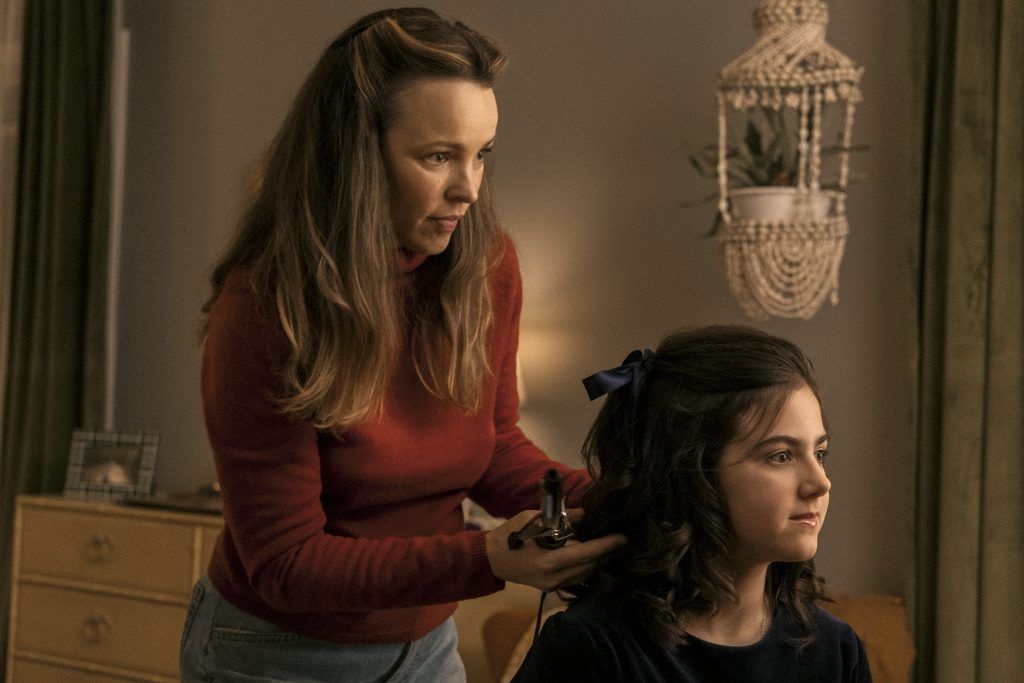Judy Blume is having a moment, and that moment’s significance isn’t accidental, nor is it neutral. We are living in a time of political upheaval; the stakes of the culture wars have never been higher. And feminists raising daughters amidst the turmoil of constant societal infighting need tools. We need tools to counter the concealing of information rather than providing it. Tools to reassure girls that their bodies belong to them and them alone. Tools to remind their daughters that although growing up is hard, so hard, they are normal, and they are not alone. And tools to equip moms to have hard, but necessary conversations with their daughters. And that’s why moms and girls need Judy Blume now more than ever.

Margaret Makes it to the Big Screen
Perhaps beloved author Judy Blume’s best-known character is Margaret Simon, the precious pre-teen protagonist of Are You There God? It’s Me, Margaret, first published in 1970. Fans of the novel have waited for a literal half-century to see Margaret grace the big screen, and that moment is finally here. Moms who grew up reading, and rereading about Margaret’s confusion with puberty, friendship, and religion are now flocking to theaters with their own daughters to share this simple, yet profound story with the next generation.
The film is an extremely close adaptation of the novel, so parents questioning its age appropriateness for their children would be well served in reading the book first. For moms hesitant or feeling ill-equipped to broach the subject of puberty with their tween daughters, the movie serves up a primer of these conversations on a silver platter. Moms and girls need Judy Blume, and they need Margaret.
An aspect of the movie that is superior to the book is the expansion of Margaret’s mother’s character. Moms everywhere will appreciate Barbara Simon’s evolution in the film as she herself stumbles through awkward conversations with her daughter, and also figures out her own identity apart from mom and wife. The film does an excellent job of establishing Barbara’s humanity- she isn’t perfect, and she makes some significant mistakes in her interactions with her daughter. But one thing she models well is being open and approachable with Margaret, and allowing conversations about growing up to unfold organically.

Are You There God? It’s Me, Margaret is probably best associated with the physical changes of puberty, namely girls getting their period. But religious identity is a huge theme of the novel/movie- obviously, it’s right there in the title. Adults sometimes forget that children can and do struggle with spirituality and belief, especially in a society (or in the microcosm of a family) that uses God and religion as a weapon. Margaret’s own quest to find God doesn’t conclude on the last page of the book or with the closing credits of the movie, but instead leaves readers/viewers with more questions. And these are questions moms and girls can tackle together, thanks to Judy Blume’s brilliant nudge.
Censorship, Book Bans, and Why Moms and Girls Need Judy Blume
Throughout a lifetime, people change. Bodies change. Minds change. Relationships change. Culture changes. When it comes to raising healthy, independent, well-adjusted girls, accurate information about all these changes is vital. Kids are never too young to start having age-appropriate conversations about their (constantly) changing bodies, consent, spirituality, and cultural topics. And books are a near-perfect tool for opening up these conversations by providing information for moms and daughters to talk about. The magic of Judy Blume’s timeless books is they provide information through stories- stories of imperfect, flawed characters who stumble through these changes just like real girls. Judy Blume meets her young readers right where they are developmentally- and respects their ability to take in and process the information she presents through her characters.
Unfortunately, historically not all adults have agreed with Blume’s honest and open approach to educating and informing young readers on sexuality and puberty. Her books have been on banned lists for decades, and her name is synonymous with the word censorship. In a time where more and more books are being banned from school libraries, sex education is being eliminated or perverted in schools, and more and more of women’s rights are being taken away instead of expanded, Judy Blume’s influence is more significant than ever. Blume tackles “taboo” topics in her writing, like periods and breasts in Margaret, masturbation in Deenie, and teenage sex in Forever. These are topics that all tween and teen girls are either experiencing or thinking about. Pretending they don’t exist won’t shield girls from learning about them, nor should they.

Judy Blume is a pioneer of the sex positivity movement, back before that was even a term. She was showing girls as far back as 50 years ago how to be sex positive by normalizing the changes and struggles everyone goes through. And many of those girls she shepherded through the tumultuous years of puberty are all grown up now, and have daughters of their own. These girls are also devouring Judy Blume’s sacred stories of growing up. Both moms and girls need Judy Blume more than ever, because her books empower them with truthful information and stories that lead to honest conversations.
Judy Blume forever, and ever.
Disclaimer: We are a participant in the Amazon Services LLC Associates and other Affiliate Programs designed to provide a means for us to earn fees by linking to Amazon.com, Target.com, Nordstrom, ABC Mouse, and other affiliate sites.












